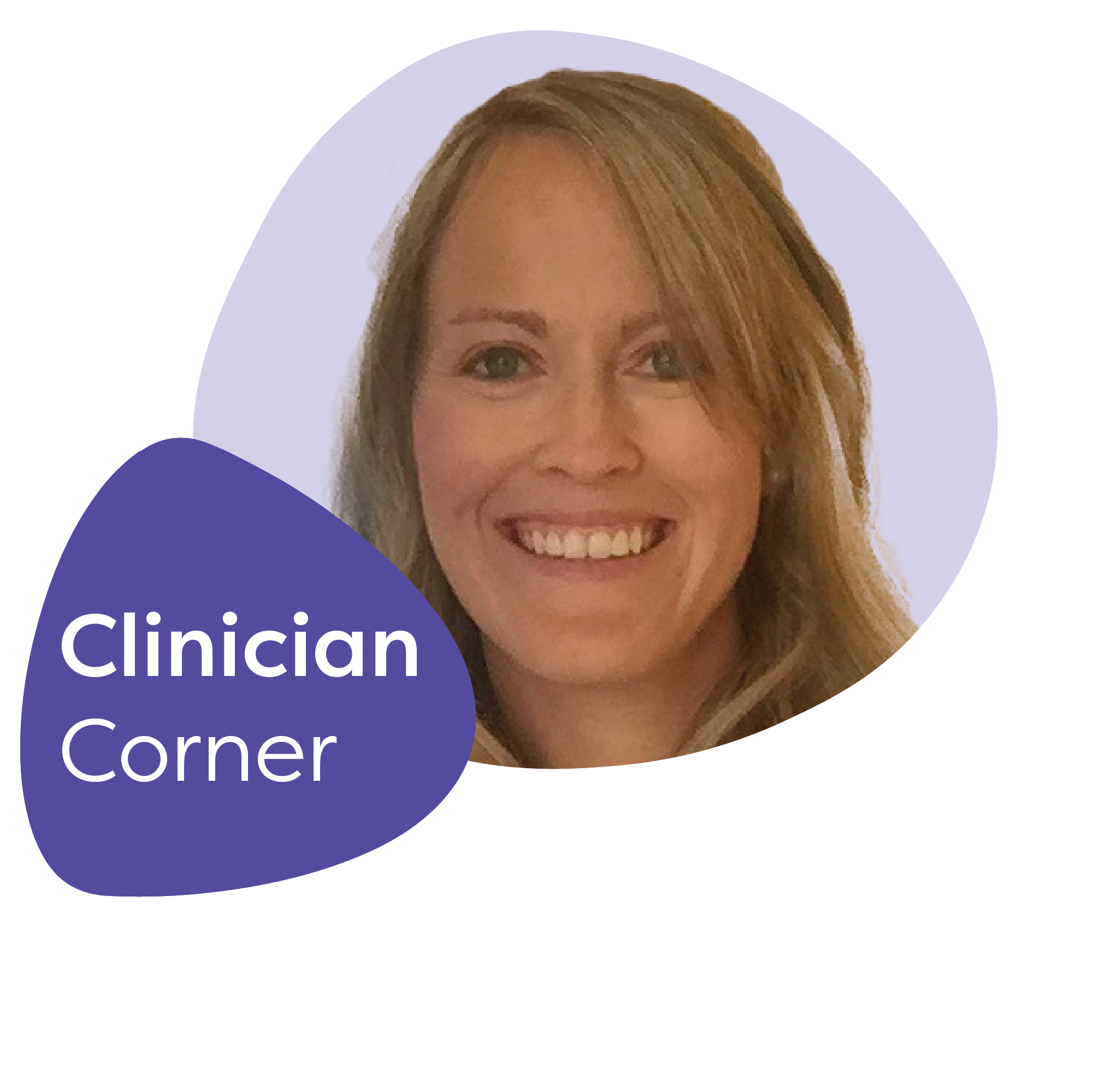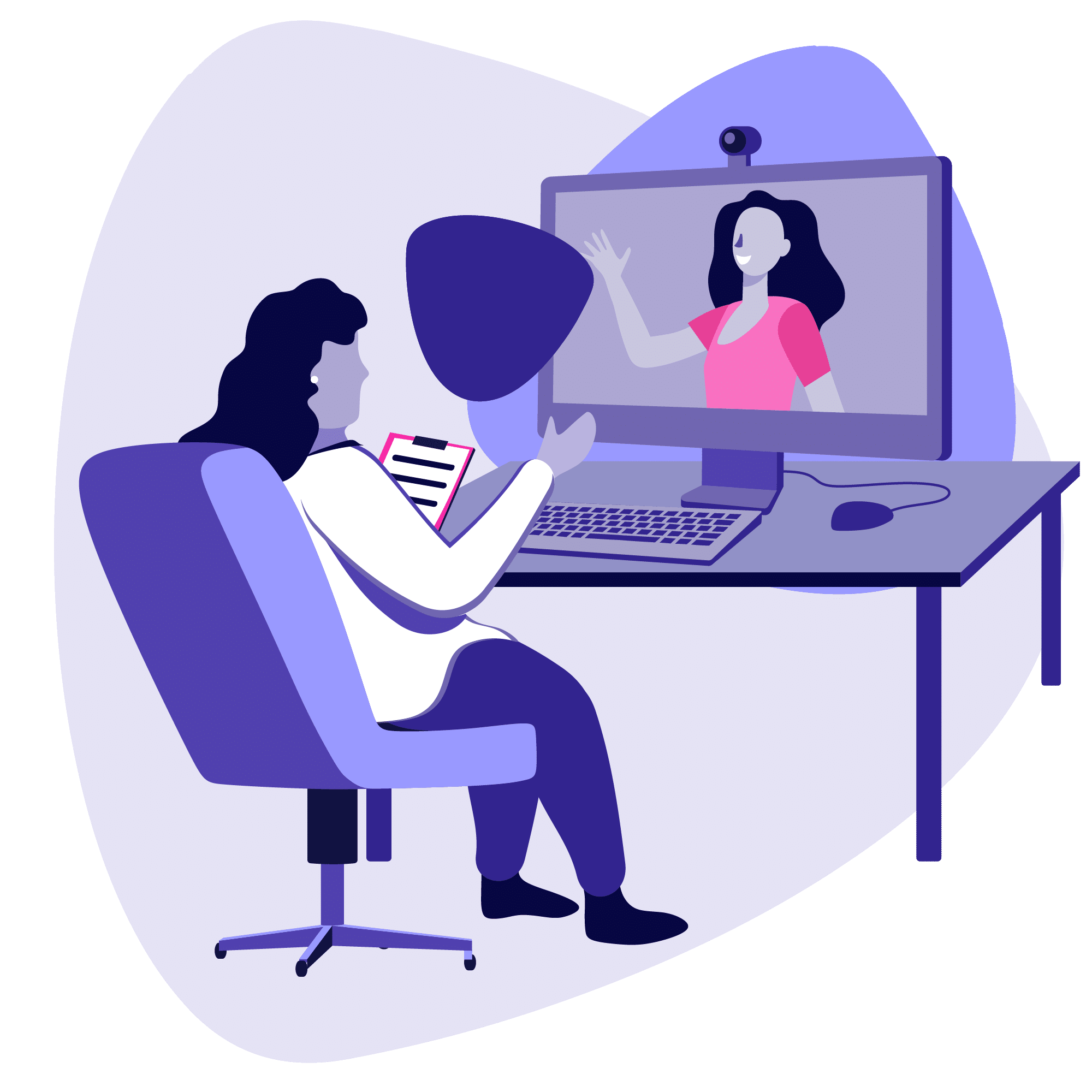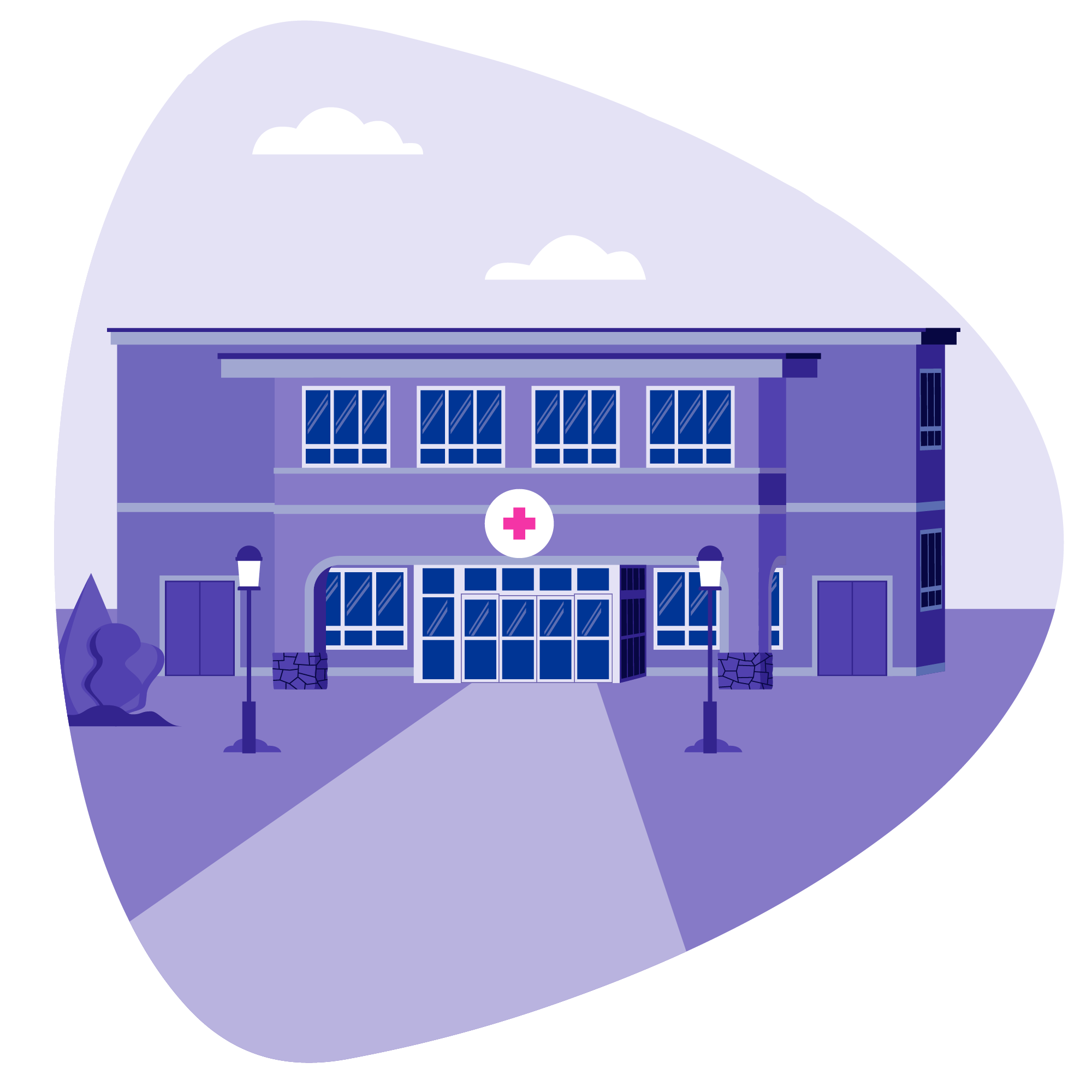Iris clinicians are at the heart of what makes our organization such a special place to work. That’s why we’re turning the spotlight on the amazing work they’re doing every day. This month, we’re sitting down to talk with Dr. María López-Rosario.
Q. How did you find Iris and decide you wanted to be an Iris provider?
A. I was working at a pretty terrible job in community psychiatry. I’ve always loved community psychiatry, and that’s what I wanted to do. However, at that point in my life, I needed more flexibility. So, I reached out to my residency colleagues, and two of them were working for Iris, and they are one of my best friends from residency. I trusted them and applied, and here I am after four years, and one of them is still working for Iris, too. It feels like a flexible, comfortable place for them and has been for me, too.
Q. How does telepsychiatry compare to in-person work?
A. That question was probably the biggest one in my mind before I did telepsychiatry because, before Iris, I had never done telework. It is different in the beginning, but it feels like it’s not different once you start, and once you begin an appointment and get to know the person, it feels like the computer and the camera go away. Because I deal with mostly children and adolescents, sometimes the little kids can be a little hard to engage in the camera because they’re so active and energetic. You need to figure out a way to engage them.
For example, I’ll change my virtual background. If I know I have a seven-year-old, I’ll put a Minecraft background on, which makes it easier to get started. It’s different because you might need to put a little more work into engagement, but, in the end, once engagement and rapport are built, the computer screen’s camera really goes away.
I’ll use Minecraft, Pokemon, and Unicorns – as long as you have something in vogue and trendy with the kiddos, it’s fun, and they’ll engage. It is a way to get to know them, too. It’s just a way to personalize the meeting.
Q. How do you foster connection with patients virtually?
A. In general, I think technology and virtual environments are what kids and adolescents engage with these days. Because this population is the majority of the patients I see, I don’t think it’s hard at all, especially for adolescents. They even sometimes prefer it. If they have a severe anxiety disorder, they might put the camera away. I’ve even had kids I see face-to-face write something in the chat. Like, “I’m embarrassed to tell you this, but it’s not as personal if I just write it out.”
I usually try to see the patient alone, but if the parent is around, they might say, “Okay, I’m going to write this in the chat because I don’t want anybody to hear it.” And they’ll write something like, “I have a girlfriend.” It’s more private and chat doesn’t make it personal. I’m still getting all the information in whatever way they like to give it to me.
Being virtual gives you a lot more options than being in person.
Q. As a healthcare professional, how do you manage work-life balance?
A. Work-life balance is one of the reasons I chose telehealth. I think work-life balance is super important. Because my clinic starts a little later in the day, I can get up pretty early, drop my daughter off at daycare, drop my son off at school, work out, shower, and then connect. I have a few hours that I actually take care of myself a little bit. Of course, I love vacations, and I love food. So I always take my vacation, and I go traveling. I go out to eat. I’m with my family. And the fact that I can disconnect and just kind of be here, it’s helpful to foster that work-life balance.
Q. What is the most rewarding part of your job?
A. It’s a hard question because my work is so rewarding overall. It can be difficult. It’s very heavy sometimes. We kind of swallow and absorb a lot of the problems that are happening with our patients, but there’s so much reward in seeing kids and adolescents thrive and become successful adults.
Whenever I get that question, a particular patient always comes to mind. I had been working with a patient who was about 14 when I first started treating her. She has pretty significant anorexia nervosa. She was a very smart, bright child, but her brain was starving. So, she was doing really poorly in school. She sometimes didn’t have energy.
Then whenever we started treating her with medication on my part, therapy from the team, and support altogether, she slowly regained weight and started being herself again. I treat community mental health, so this population is poor, underserved people. At the end of the day, she was able to graduate, and she was given a scholarship to Harvard. It was such a big experience. It was not only that she got better from the anorexia, but she was confident, independent, and able to get out in the world, and have such an amazing accomplishment. The success of my patients is the most rewarding.
Q. What do you love about working with Iris?
A. Iris is really the best company I’ve ever worked with. It’s probably been the only company that treats you more as an individual rather than as, you know, “you’re just one of the doctors here.” Whenever I was one or two years in, my manager sent me an amazing gift. She sent me a drawing of myself in a cape. In one hand, I was holding a pizza slice, and the other was holding a weight. It was so heartwarming because she knows me. She knows I’m a foodie, and she knows I love to go out and take care of myself, too.
Then, alongside the picture was a charcuterie board shaped like Puerto Rico. I am from Puerto Rico, and she knows I am super proud of my Puerto Rican roots. I don’t think even someone in my family would give me such a significant gift. I think the details are key. I don’t think any other company would care about that.
Q. Why do you think telepsychiatry is important to the future of mental healthcare?
A. I think it’s paramount and essential — not only telepsychiatry but telemedicine work in general. We learned how important it was during the pandemic. The fact that you can stay safe, not expose yourself to COVID, and click and connect with quality care. That was lifesaving for many people, especially underserved people. The clinic that I work with is in Los Angeles. There’s a huge gap between the underserved population versus the affluent people. Most patients don’t even have a car or money to take a bus.
I think telepsychiatry, and telemedicine in general, have built a very strong bridge. The care that wasn’t even being provided before is now in the palm of your hand or your home office. Mental health is really a thing that’s getting worse. We’re getting more mental health problems and psychiatric illnesses, and the fact that people can click and get help decreases stigma, increases connection and the personalization of work. It’s here to stay. I don’t think it’s going to go away because if it does go away, it’ll hurt the health of the country.
Q. What advice would you give to someone new to telepsychiatry?
A. I would just say jump into it. It seems scary at first because of the lack of connection with colleagues. You are in either your home or office, probably by yourself, that part is scary. My advice would be to stay connected with either your fellowship bodies or residency bodies – you can even stay connected virtually. You can even do super visual supervision. I think my advice is not to lose that connection with your location and your local colleagues.
At Iris, we believe our providers should be respected, valued, and applauded for the work they do, and we couldn’t be more proud to say, “thank you” to our very own Dr. López-Rosario. If you’d like to learn more about working for Iris Telehealth, contact us today.



